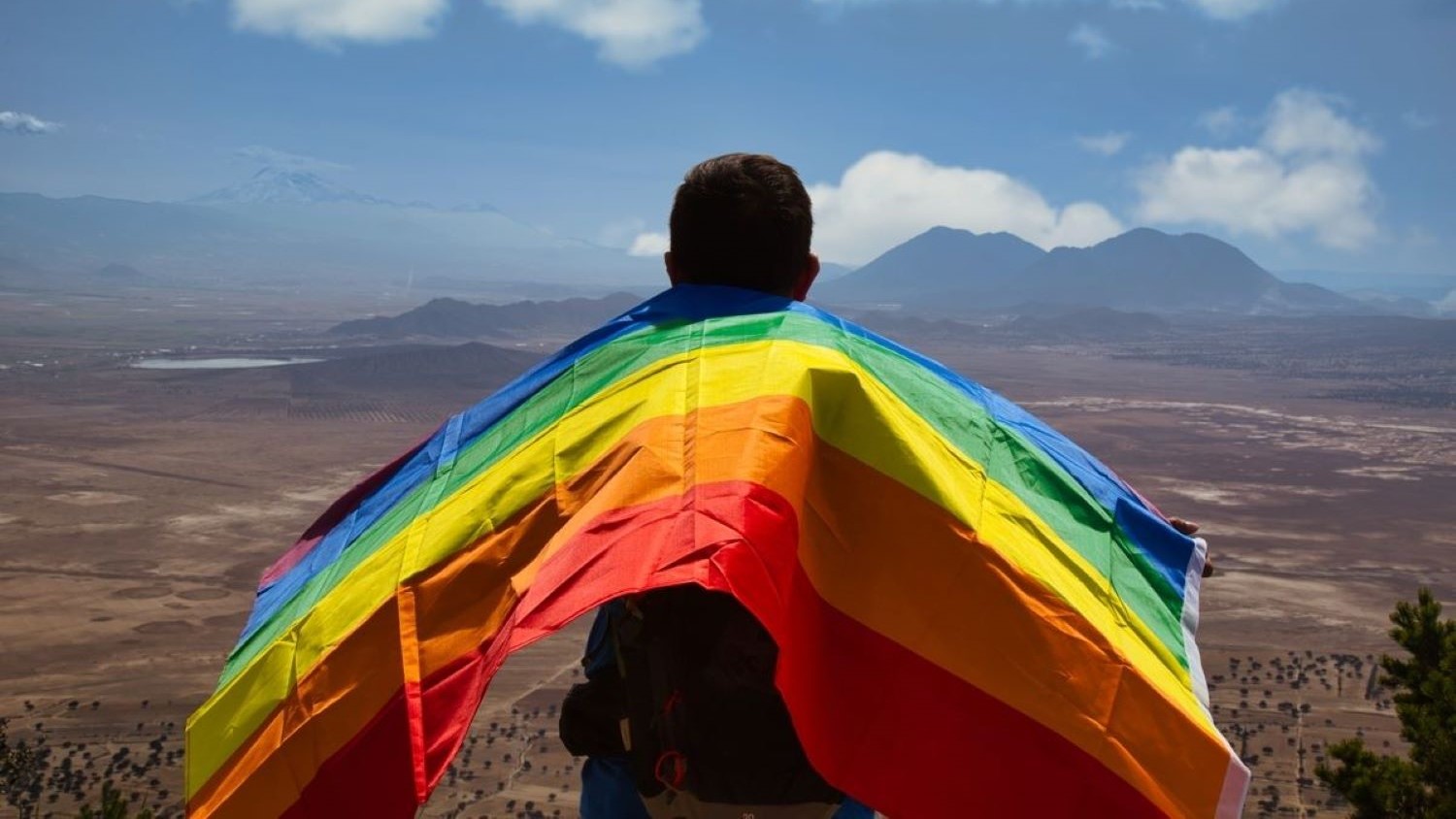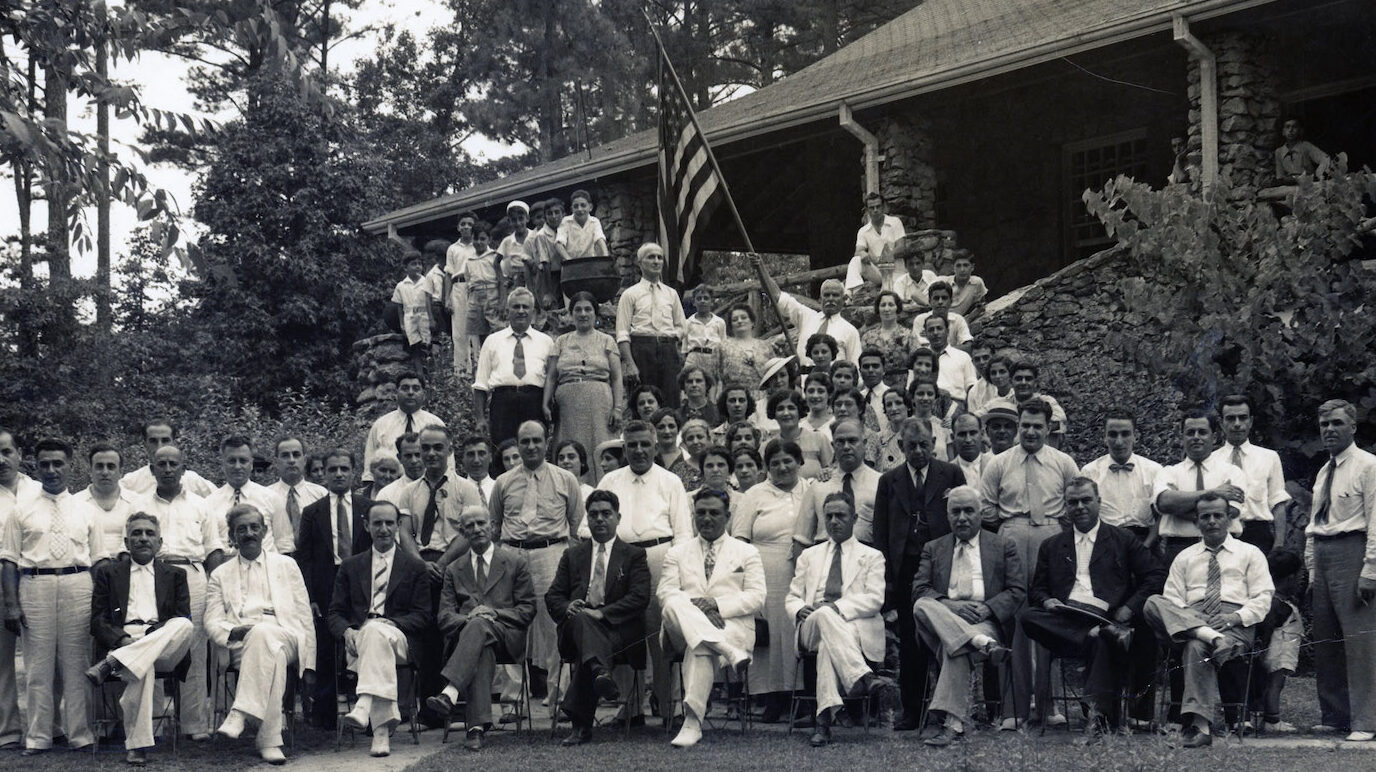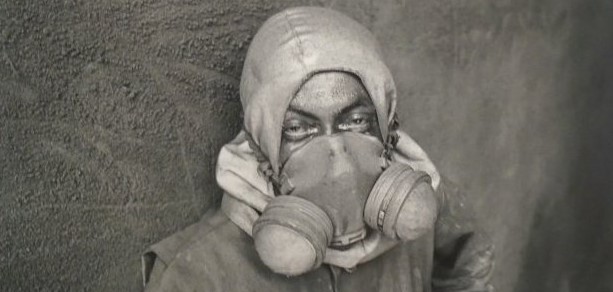The Khayrallah Center’s LGBTQIA+ and the Arab Diaspora Oral History Project seeks to record and preserve the lived experiences of LGBTQIA+-identifying individuals of Middle Eastern and/or North African descent. For Pride Month 2025, we want to highlight the first four transcripts from this series, all of which are publicly accessible via the Hoda Z. Nassour and Herbert R. Nassour Jr., MD, Archive of Lebanese Diaspora, and discuss the significance of recording the diverse experiences of individuals within the diaspora.
“In a way, it’s always assumed that if you come from an Arab country, this is not something that you have; most people are not queer, or they can’t be… For me, it’s important that it does come across, that it is presented as, I’m queer. I’m a queer Arab.”
– Mortada Haidar
In partnership with oral historian John Horan, the Khayrallah Center interviewed Stephen Baddour (he/him), Karni Keushgerian (she/her), Mortada Haidar (they/them), and Arielle Sonnenschein (she/they). The series of interview transcripts provides a glimpse into how these individuals’ queer and Arab identities intersect and inform their outlooks and personal experiences.
“My queerness is political in a way that, in order for me to be queer and in order for me to be liberated within my sexual orientation, culturally, socially, politically, that also has to include certain liberation that comes from understanding the politics behind the Middle East.”
– Karni Keushgerian
Despite varying ages, circumstances, and familial and cultural dynamics, all four interviewees emphasized the importance of seeking out communities where they felt supported in all aspects of their identity. Each person was asked to discuss the overlap (or lack thereof) they experienced between Arab and LGBTQIA+ spaces, as well as how identifying as a queer Arab has shaped them from their upbringing to now. These deeply vulnerable and insightful discussions provide a unique perspective on the relationship between certain aspects of Arab culture and those ideals that are typically viewed as “Western.”
“…I always felt like I wasn’t really enough of anything growing up. Not Arab enough, not Jewish enough, not Irish enough, not this, not straight enough… So I think for me, it became this real reckoning where it was like, Oh, actually I just am all of these things, like fully 100 percent. It’s such an honor to have access to so much culture and so much tradition – and to be able to engage with it.”
– Arielle Sonnenschein
The Khayrallah Center created this initiative to document and highlight voices of the Arab Diaspora that have typically been excluded from the traditional historical narrative. By preserving these personal histories, we hope to diversify our collection of modern diaspora experiences and emphasize the importance of listening to and sharing these stories. If you have your own story to tell, we encourage you to submit to either our LGBTQIA+ and the Arab Diaspora Interest Form or our Lebanese Oral History Interest Form, the latter of which will reopen in Spring 2026. Stay tuned for more oral histories and their transcripts as we continue to interview and produce for this project.
“Find your people. That’s the most important thing, find your people. If they can be in your family, that’s wonderful. But find your people, male and female, or however they identify, and allow yourself to be who you are.”
– Steve Baddour
- Categories:



